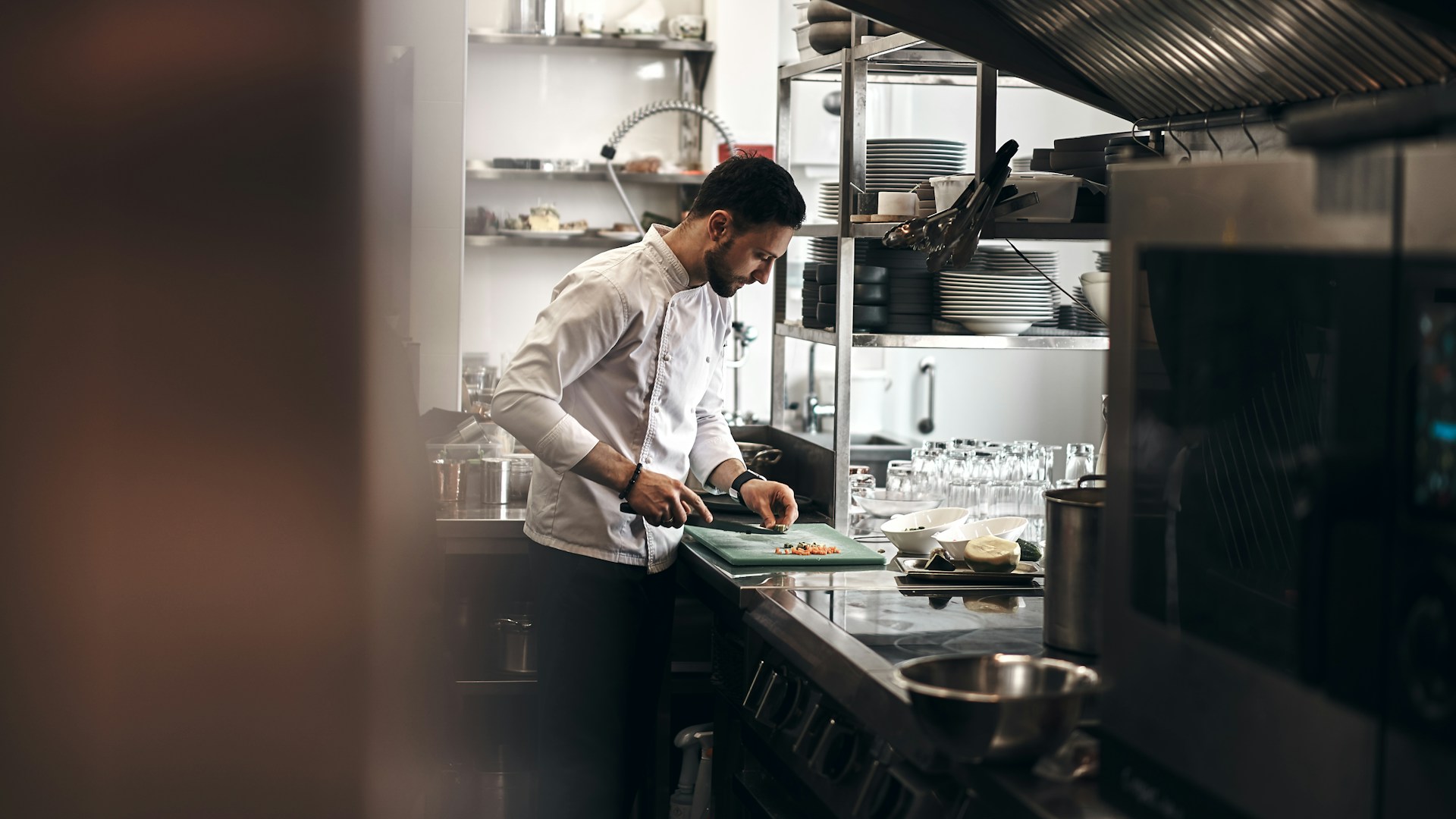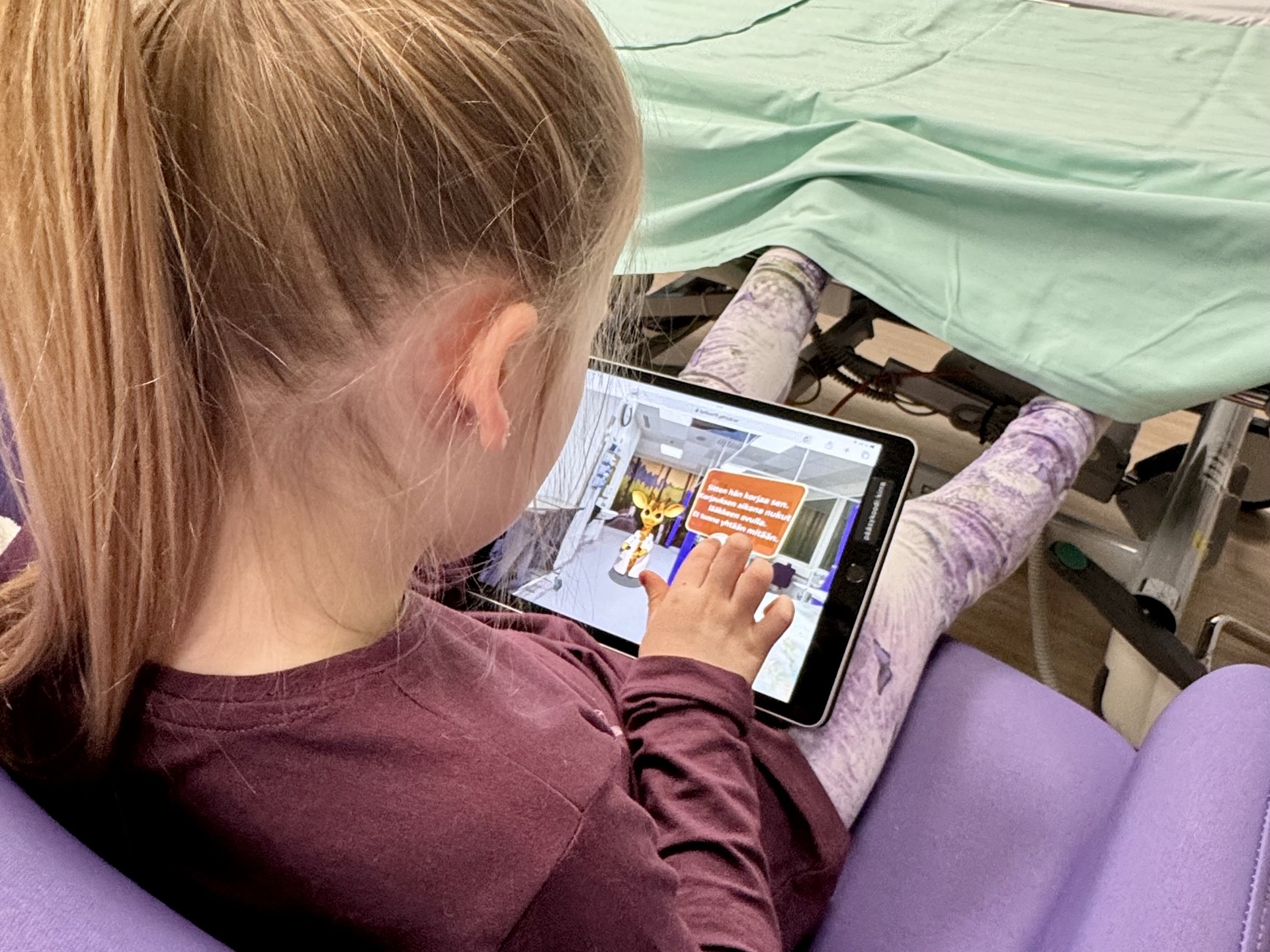Professional kitchens and catering businesses are struggling with profitability, labour availability, absenteeism and changing circumstances. A joint project of three universities of applied sciences aims to improve the efficiency of the work in the field by highlighting the views of the staff.

Published:
Edited:
Professional kitchens and catering are physically and mentally demanding working environments. Every day, workers are faced with heavy lifting, busy and fast-changing work situations and multi-level work processes.
The field is used to coping, but risk factors can lead to challenges with mental health and well-being, musculoskeletal disorders and, in extreme cases, early disability pensions. In addition, productivity in the industry has not grown at the same pace as in other fields, despite increased automation.
Turku University of Applied Sciences, Haaga-Helia University of Applied Sciences and South-Eastern Finland University of Applied Sciences are working together to improve working conditions, ergonomics and productivity in professional kitchens and catering. The key role in the development work is played by the staff of the companies in the industry.
The project “Professional kitchens and catering – KetCat” will develop the activities of a total of 43 SMEs in the area of their choice. Some of the companies have already been selected for the development activities and more will be sought during the project. Participating companies can be located anywhere in Finland.
– We are now looking for new participants for next autumn. Through a dialogue between management, staff and project implementers, the company will choose which area to focus development on. For example, the choice may be to reduce physical strain by developing working postures and methods, to define working methods or responsibilities, or to use automation solutions and new technologies to streamline work processes, says Paula Savolainen, project manager at Turku UAS.
The project will apply a method developed in Finland and proven in other fields, in which employees play an important role. The method involves the participation of staff, which allows problems and areas for improvement to be highlighted in an employee-centred way.
– The views of staff are strongly expressed. The end result is productive work that is safer for the worker, both mentally and physically. The aim is to create lasting improvements in working conditions and productivity in the industry, says Savolainen.
A positive approach to development
The companies selected for the project must have the will to develop. This applies to both management and employees.
According to Altti Lagstedt, senior lecturer at Haaga-Helia University of Applied Sciences, the involvement of the companies that have joined the project so far has been excellent. Staff time has been freed up for workshops, which is of great value.
– We have had fruitful discussions with company management. Employees have gone deeper into reflecting on their own work and the issues that have arisen, says Lagstedt.
A development cycle of around 6-8 months is drawn up with companies, where development is supported on the terms of the company and its staff.
– An outside perspective broadens your thinking and external support gives your development a sense of purpose. In addition, the project provides access to researched knowledge and various networks, says project manager Teemu Pulkkinen from South-Eastern Finland University of Applied Sciences
Cooperation offers a unique perspective
According to Paula Savolainen, the project is pleased with the good start to the cooperation.
– If we continue to work with businesses in the same way, we will have a unique insight into the challenges of doing practical work in the SME-scale professional kitchen and catering industry. We will also be able to identify the factors that can help us address these challenges in order to improve working conditions, ergonomics and productivity, says Savolainen.
In addition to professional kitchens and catering companies, the project also cooperates with industry associations such as Ammattikeittiöosaajat ry and Keittiömestarit ry.
Trade fairs, webinars, workshops, association events and discussion forums are channels through which the results of the project will be disseminated throughout the industry. Project results and lessons learned will be documented and published so that they can be used after the project has ended.
Professional kitchens and catering – The KetCat project is co-funded by the European Union. The project is coordinated by Turku UAS. The project started at the end of 2024 and will continue until 2027.
Visit
Read next
-
Press Release

Turku UAS launches StartLab to make students’ business ideas come true
Turku University of Applied Sciences will offer mentoring for all its students to develop their own business ideas. A StartLab will be established where students can go for…
-
Press Release

Turku UAS’ project receives millions in funding for countering hybrid threats to critical infrastructure
The hybrid threat mapping project has been awarded a two-phase Business Finland grant totaling 5 million euros. The project, coordinated by Turku University of Applied Sciences, aims to…
-
Press Release

New app to help children prepare for hospital visits
An international project led by Turku University of Applied Sciences developed an app that allows children and their families to virtually visit a hospital and learn about the…

